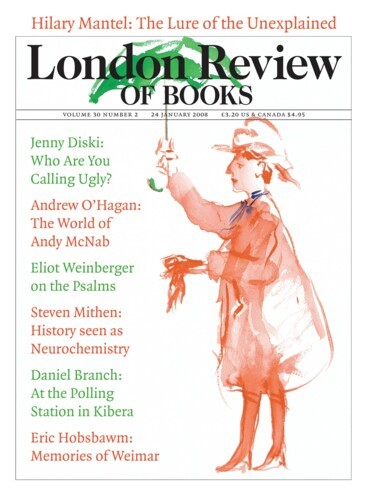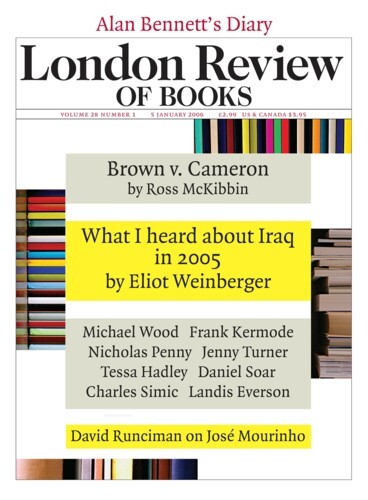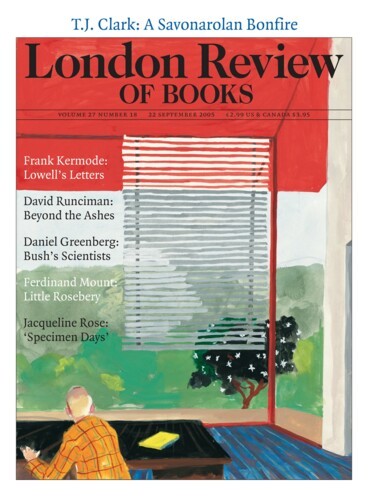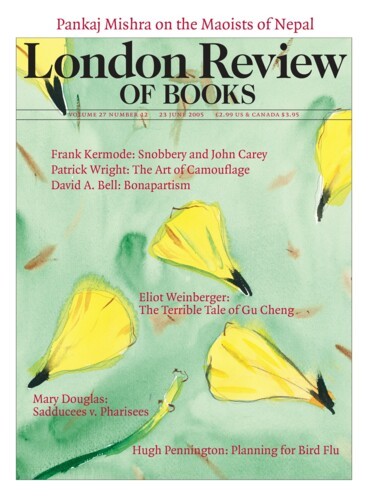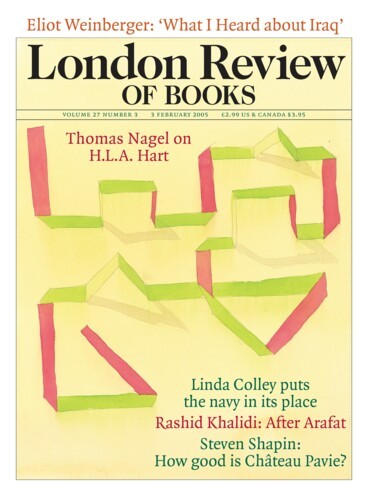Praise Yah: the Psalms
Eliot Weinberger, 24 January 2008
The 1611 King James Authorised Version of the Book of Psalms – and of course of the entire Bible – is so deep in the English language that we no longer know when we are repeating its phrases. Inextricable from the beliefs and practices of its faithful for four hundred years, it has been transformed from the translation of a holy book into a holy book itself. Poets, however, know from experience that there are no definitive texts, and over the centuries an assembly of angels has been singing the Psalms in its own way: Wyatt, Sidney, the Countess of Pembroke, Campion, Milton, Crashaw, Vaughan, Smart, Clare, Hopkins and Kipling among them. Some were setting lyrics to new tunes; some were performing metrical exercises with familiar material; some were expressing private prayer; some were simply writing a poem. St Augustine said that all things written in the Psalms are mirrors of ourselves and it was inevitable that, when English poets were still largely Christian believers, they would look into the mirror of this foundational anthology of poetry, as Chinese poets looked into the Confucian Book of Songs.
